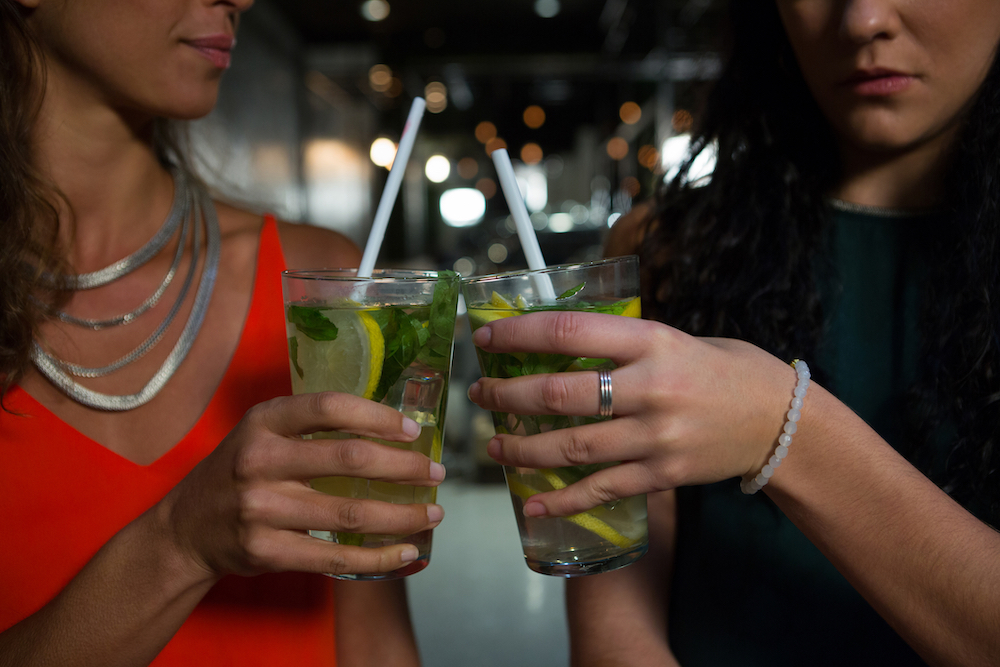
“Mocktail” is a term that people who don’t drink alcohol may be familiar with. These non-alcoholic drinks are being served across the U.S., as abstinence and moderation gain popularity.
Sober bars give people in recovery a place to hang out without putting their sobriety at risk.
As Marketplace reports, there is a growing number of sober bars that have opened around the country, including Listen Bar in New York and Sans Bar in Texas. Listen Bar’s slogan is “All Bar No Booze,” and they serve herbal drinks like “She Pretty” and “Ghost me Maybe.”
According to the bar’s official website, Listen Bar is “a booze-free bar in NYC rewriting nightlife beyond alcohol… [our] rowdy vibes have drawn a following among drinkers and non-drinkers alike.”
Chris Marshall, the founder of Sans Bar in Austin, Texas, says, “We handcraft our own specialty ‘mocktails’—things like a rosemary and ginger mule, or a sans-garita, which incorporates lime, agave and apple cider vinegar.”
Marshall’s plans for Sans Bar are ambitious. It has a second location in Kansas City, and has also hosted booze-free events in St. Louis, Portland and Alaska.
With “sober curious” becoming a growing trend and non-drinking events like Dry January also gaining global popularity, Marshall feels there’s a lot of growth potential for the sober bar industry.
“Dry January was this kind of small, inside-baseball thing five years ago,” Marshall explains. “[It’s] now a huge marketing opportunity for brands.”
One of the big keys to sober bars is emphasizing that you can have a good time without getting drunk.
On Sans Bar’s website, it states, “We are a growing group of average people who recognize that life can be fun without alcohol. We are sober, we are on the move, and we believe that real connection happens when people are sober… We believe positive change can happen in the smallest ways, and still yield a tremendous impact.”
Another sober bar is The Other Side in Illinois. As the bar’s co-founder, Chris Reed, told The Fix, having a sober bar “helps people stay plugged in and close to others in recovery… It brings us together and it shows us recovery doesn’t suck, that you can still socialize.”
